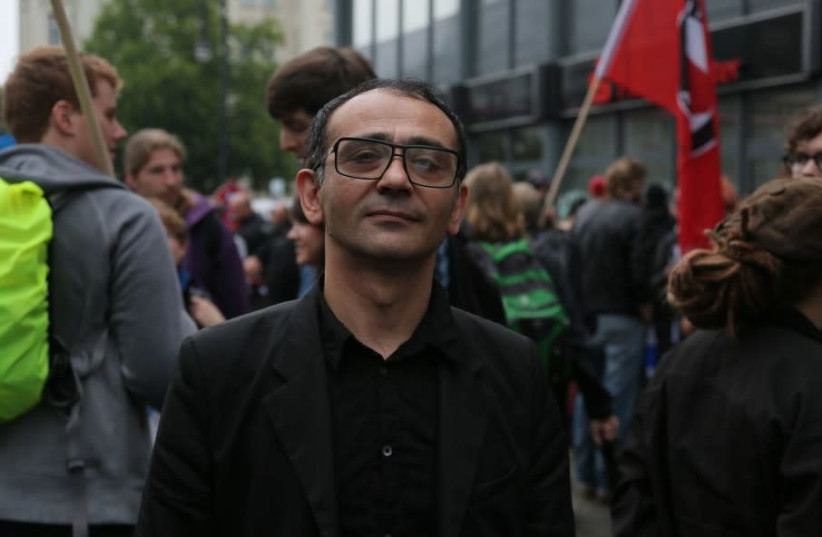The international effort to bring a largely recalcitrant German city council in Freiburg to freeze its partnership with the Iranian regime in the city of Isfahan led to a victory on Tuesday for Iranian dissidents and a small political party who have all campaigned for abolishing the partnership since 2020.
In a major setback to the city’s pro-partnership mayor Martin Horn, the 48 city council members demanded that he “neither seek nor respond to contacts with representatives of the political system in Iran and to only maintain contacts that serve the purpose of civic exchange. The parliamentary groups condemn the human rights violations in Iran and express their solidarity with the Iranian women in Freiburg and Isfahan, who are fighting against the oppression of women in Iran.”
Sheina Vojoudi, an Iranian dissident who fled to Germany to escape persecution, told The Jerusalem Post that “it’s definitely a positive move towards defending human rights in Iran. Our efforts are meant to hinder the brutality of the regime in Iran and its vast arms of terror in the region and also in Europe.”
Vojoudi, a fellow at the Gold Institute for International Strategy who played a key role in campaigning against the twin city partnership, said that “I personally request that Freiburg take responsibility for its long-term partnership with Isfahan, the city of Toomaj Salehi, the Iranian rapper who has been in solitary confinement since his arrest in the recent Iranian uprising by the regime. Supporting Isfahan’s civilians means fighting for their rights and saving them from execution.”
German-Iranian dissident Kazem Moussavi, who also played a significant role in the campaign to pull the plug on the partnership, told the Post that the freezing of the partnership “is a big defeat for the Iranian regime but also for the appeasement policy in Freiburg. It took place at a time when the Iranian people expect support against the regime.”

He said that “it has been worthwhile to constantly protest against the Freiburg twin city partnership with the antisemitic mullahs’ administration in Isfahan over the years. Thanks for your support.”
German civil servant faces criticism over alleged antisemitism
Iranian dissidents and pro-Israel activists faced opposition from allegedly antisemitic civil servant Michael Blume, who is assigned to fight Iranian antisemitism and hatred of Israel in the state of Baden-Württemberg, where Freiburg is located. A German court in Hamburg ruled in January that Blume can be termed antisemitic due to his statements against German Jews and a father of the IDF, Orde Wingate.
Moussavi, the spokesman for the Green Party in exile, said he was “disappointed in Mr. Blume, who abandoned the people in Iran and Israel in the fight against antisemitism.”
THE POST reported in April 2022 that Iranians demanded that Freiburg end its partnership with Isfahan due to the Iranian city’s annual al-Quds rally calling for the destruction of Israel.
Iranian dissidents and pro-Israel activists have faced opposition since 2021 from all of the major parties in the city council (with the exception of the tiny JUPI Party) and mayor Horn, as well as initially from the German-Israel Friendship Association (DIG) in Freiburg.
“In view of the human rights violations that have been practiced in Iran for years, but are now becoming internationally visible through the courageous demonstrations against the regime, this step is long overdue,” JUPI city councilman Simon Waldenspuhl said.
The JUPI parliamentary group said it “will continue to critically monitor the twin city partnership with Isfahan. Political relations can only be resumed when Iran observes basic human rights, no longer oppresses women, no longer politically persecutes homosexuals and also fundamentally recognizes Israel’s right to exist.”
JUPI was the only party to consistently criticize the Freiburg-Isfahan partnership over the years due to the Iranian regime’s Holocaust denial and its genocidal antisemitism targeting the Jewish state.
After social media outrage and German and Israeli media queries to the DIG in 2021, the group tweeted urging the city to freeze the partnership. The association is funded by the German foreign ministry.
The German Jewish monthly Jewish Review (Jüdische Rundschau) published a series of investigative reports on the partnership, including by the reporter of this article. Isfahan is a major center for the reported construction of Iran’s nuclear weapons program and a hub for missile production.
The publisher of the Jewish Review, Rafael Korenzecher, and its editor-in-chief Laila Mirzo, as well as previous editor-in-chief Simon Akstinat, prioritized hard-hitting journalism and commentaries about the controversial partnership.
In 2022, the clerical regime said it plans to build a new research reactor at its nuclear site in the Isfahan Province. “This is an entirely domestic project that will close the chain of research, evaluation, testing and production of nuclear energy in Iran,” Mohammad Eslami, head of the Iranian Atomic Energy Organization, was quoted by the Iranian regime-controlled ISNA news agency as saying.
“Those who stand behind the Freiburg and Isfahan partnership can't be considered as people who act against antisemitism.”
Brig.-Gen (res.) Yossi Kuperwasser, former Strategic Affairs ministry director-general
Israeli Brig.-Gen (res.) Yossi Kuperwasser, a former Strategic Affairs ministry director-general, told the Post in mid-January that “having a twin city [partnership] controlled by the Iranian regime that executes protesters and mobilizes the world to wipe Israel off the map can’t be explained by a German city. That should not have happened.
“Those who stand behind the Freiburg and Isfahan partnership can’t be considered as people who act against antisemitism,” he said.
